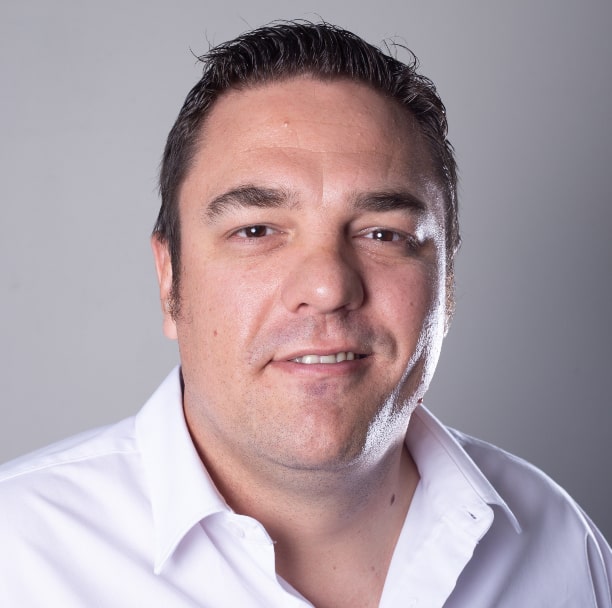COVID-19: No sense in government actions, but protect yourself
By Dr Eugene Brink, Strategic Adviser at AfriForum
There is so much that is outrageous and unknown about COVID-19 and the accompanying lockdown that I am surprised that so many people are still trying to make sense of what the government is doing.
The ridiculousness, irrationality and incompetence of Pres. Cyril Ramaphosa and his party and government even compelled the United Nations (UN) Human Rights Commission – itself loaded with violators of human rights such as Sudan, Venezuela and Eritrea – earlier this year to describe the harshness of South Africa’s initial lockdown as one of the strictest in the world. The excessive use of violence and suppression was singled out as unacceptable.
Then there is everything that is banned without rhyme or reason. Cigarettes and tobacco still may not be sold, in spite of an absence of scientific proof that using it does in fact advance the spread of the virus.
And in most of these instances a responsible majority is getting punished for the sins of a reckless minority. Numerous civil rights have been curtailed this year and many of these curtailments are still (or again) in force based on some people’s wrongdoing, the government’s imperiousness and, finally, a total lack of scientific support. Simply because some people do not wear masks, do not adhere to certain basic hygiene rules and abuse alcohol, many of our freedoms are suddenly taken away from all of us.
‘Mistakes’ may be intentional and malicious
The question is if any of these measures really are effective. Following a month-long hard lockdown (that never could last long without dire consequences) and then a gradual relaxation, the numbers are still rising steadily. The number of infections now doubles about every 18 days. Hospitals in Gauteng especially never were prepared for this. In short, the answer to the question if they were prepared, is no.
Another pertinent question – albeit somewhat controversial – is whether the government really cares if people lose their jobs, businesses and dignity and – even more controversial – if this perhaps is one of their covert objectives.
Firstly, public servants still retain their jobs and income during this time. Any attempt to curb the state’s salary account is met by the political anger of the socialist trade unions. And then the excuse is used that a smaller public service will only contribute to unemployment in the country. As a matter of fact, a smaller and more efficient public service is a prerequisite for unlocking value in the private sector, where the majority of jobs should be created.
However, while politicians and public servants are still enjoying job security during this time, the government apparently has no qualms about people in the private sector, being exposed to market forces, losing their jobs and income owing to the government’s edicts and mistakes.
If all the elements in this equation are taken together it leads to a quite likely scenario that higher unemployment and greater dependence on the state are indeed ANC objectives. The business sector has been forced to its knees, resulting in more people being dependent on an ANC-controlled state for everything they need. They therefore have no option but to continue voting for the ANC.
Do not underestimate COVID-19
Be that as it may, this government has neither the will nor the ability to protect us. Every year many more people die because of traffic accidents than have died from COVID-19 this year. Many more people are murdered and die from cancer. Yet there is no lockdown to curb this. Neither are there any solutions. Liquor is not prohibited to reduce traffic accidents. Or cigarettes to combat various types of cancer.
Nevertheless, COVID-19 is a growing danger and several thousands of people in South Africa have already died from it. Hundreds of thousands have been infected. Even if the rate of survival is 99% or more, every death means that somebody’s brother, sister, child, mother, father or grandparent has died. It still is a person’s life, and we should not become frivolous or flippant about any death.
The ultimate message I want to emphasise is that our health, safety and welfare depend almost entirely on ourselves. A debate is still raging on whether masks are indeed effective in curbing the spread of the virus. It is generally regarded as recommended and people all over the world use masks successfully to protect themselves. Some experts may also have good reason to doubt the overall effectiveness of masks, or perhaps an aversion to masks is cultivated purely for cultural reasons.
To be safe, rather use masks. Not because this is what the government wants, but because you care for yourself and for people around you. Wash your hands. Avoid crowded places (this is not too difficult these days). Keep a safe distance between yourself and other people in public places. Work from home if possible. Do not send your children to school if they are not feeling well.
It is the little things that are going to make a difference in your and other people’s lives and that will ensure that we will again experience a semblance of normality. Do not become a victim simply because you are annoyed when someone else does not wear a mask or take other precautions. If you don’t want to do it for someone else, do it for yourself. Act rationally in a time of hyperirrationality.
Above all, do not be naive about the government’s true objectives in this crisis or their indifference about your life. The Austrian economist F.A. Hayek said: “‘Emergencies’ have always been the pretext on which the safeguards of individual liberty have been eroded.”











